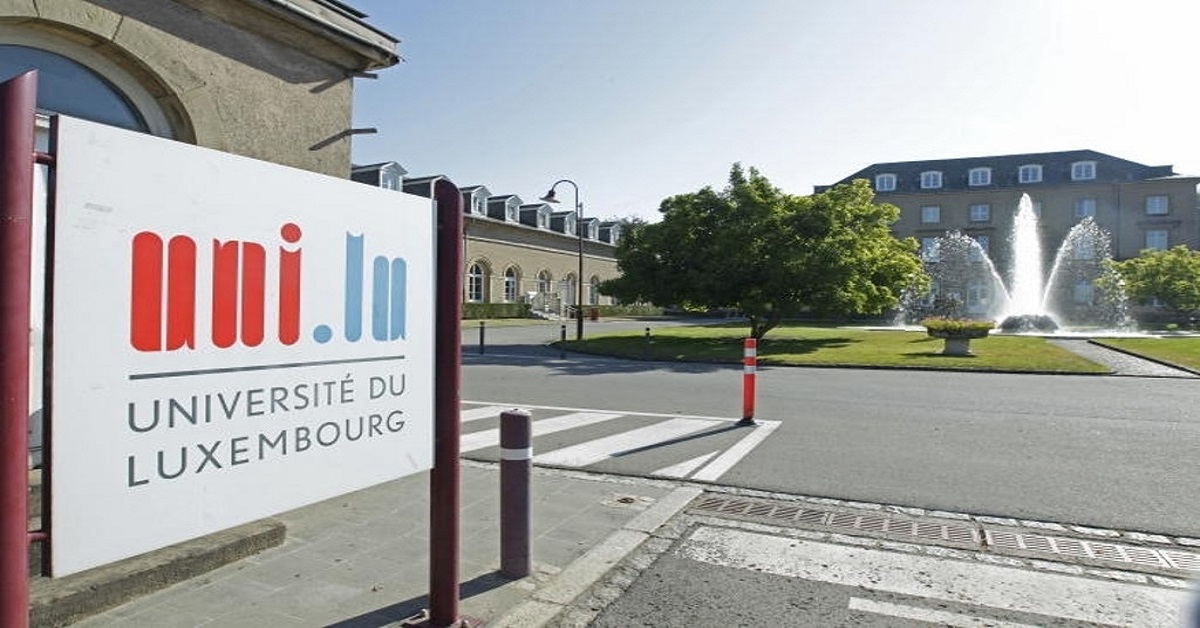
SnT is a leading international research and innovation centre in secure, reliable and trustworthy ICT systems and services. We play an instrumental role in Luxembourg by fueling innovation through research partnerships with industry, boosting R&D investments leading to economic growth, and attracting highly qualified talent.
The University of Luxembourg is seeking to hire a highly motivated and an outstanding researcher in the area of Artificial Intelligence, Machine Learning and Signal Processing for Satellite Communications for its Interdisciplinary Centre of Security and Trust (SnT), within the Signal Processing and Communications (SigCom) research group, led by Prof. Björn Ottersten and Prof. Symeon Chatzinotas.
SnT carries out interdisciplinary research in secure, reliable and trustworthy ICT (Information and Communication Technologies) systems and services, often in collaboration with governmental, industrial and international partners. SnT is active in several national projects funded by National Research Fund (FNR) and local industries, and international research projects funded by the EU FP7 programme, H2020 programme and the European Space Agency (ESA). For further information, you may check: www.securityandtrust.lu
The SigCom research group carries out research activities in the areas of signal processing for wireless communication systems including satellite communications and radar systems, and is currently expanding its research activities in exploring several emerging use cases of next generation wireless communications systems. For details, you may refer to the following: https://wwwen.uni.lu/snt/research/sigcom
We’re looking for people driven by excellence, excited about innovation, and looking to make a difference. If this sounds like you, you’ve come to the right place!
Your Role…
The successful candidates are expected to perform the following tasks:
- Analyzing and investigating methods for improving the performance and efficiency of signal processing algorithms by using Artificial Intelligence and Machine Learning techniques in the context of Satellite Communications
- Implementing, training and developing of AI-based algorithms in a software environment.
- Implementing and testing AI inference algorithms in GPU, FPGA and/or commercial AI chipsets.
- Disseminating results through scientific publications and conferences
- The candidates are expected to actively contribute to the different research projects, either coordinating technical contribution and/or preparing project deliverables
- Preparing new research proposals to attract industrial, national and European projects
- Providing assistance in the supervision of PhD students
Your Profile…
- A PhD degree in Telecommunication Engineering, or Electrical Engineering or Computer Science/engineering with a focus on artificial intelligence and wireless communications.
- International experience is desirable
- Sound publication track record in relevant international conferences and top journals
- Hands-on implementation and testing of AI-accelerated signal processing with dedicated hardware (GPU, FPGA, AI chipsets: Versal AI, Jetson TX2, Movidius Myriad, etc.)
- Strong programming skills in MATLAB, C++ and HDL (VHDL, Verilog, HLS, etc.). Other languages such as Python or JULIA are a plus
- Experience of working with industrial projects or public funded research projects is highly desirable
- Highly committed, excellent team-worker, and strong critical thinking skills
- Excellent written and verbal communication skills in English
Here’s what awaits you at SnT…
- Exciting infrastructures and unique labs. At SnT’s two campuses, our researchers can take a walk on the moon at the LunaLab, build a nanosatellite, or help make autonomous vehicles even better
- The right place for IMPACT. SnT researchers engage in demand-driven projects. Through our Partnership Programme, we work on projects with more than 45 industry partners
- Be part of a multicultural family. At SnT we have more than 60 nationalities. Throughout the year, we organise team-building events, networking activities and more
In Short…
- Contract Type: Fixed Term Contract 24 Month – which may be extended up to five years
- Work Hours: Full Time 40.0 Hours per Week
- Location: Kirchberg
- Job Reference: UOL04217
How to apply…
Applications in English should include:
- Curriculum Vitae, including:
- Contact address
- For each degree received or currently enrolled in, provide the degree, institution name, institution city and country, and start date and date (or expected date) of graduation. Include the title and short summary of your PhD Thesis and supervisor name (and Bachelor / Master Thesis if you did one)
- If you do not have yet received your PhD but will do soon, please include a tentative graduation date
- List of publications (authors, title, journal/conference name and date of publication). Provide a link in case of open access
- Name, affiliation and contact details of three referees
- Cover letter with motivations and topics of particular interest to the candidate (approx. 1 page)
All qualified individuals are encouraged to apply.
Applications will be processed upon arrival. Please apply ONLINE formally through the HR system. Applications by Email will not be considered.
The University of Luxembourg embraces inclusion and diversity as key values. We are fully committed to removing any discriminatory barrier related to gender, and not only, in recruitment and career progression of our staff.
About the University of Luxembourg…
The University of Luxembourg aspires to be one of Europe’s most highly regarded universities with a distinctly international and interdisciplinary character. It fosters the cross-fertilisation of research and teaching, is relevant to its country, is known worldwide for its research and teaching in targeted areas, and is establishing itself as an innovative model for contemporary European Higher Education. The University`s core asset is its well-connected world-class academic staff which will attract the most motivated, talented and creative students and young researchers who will learn to enjoy taking up challenges and develop into visionary thinkers able to shape society.
Further information
For further information, please contact: Dr. Jorge Querol (jorge.querol@uni.lu)





